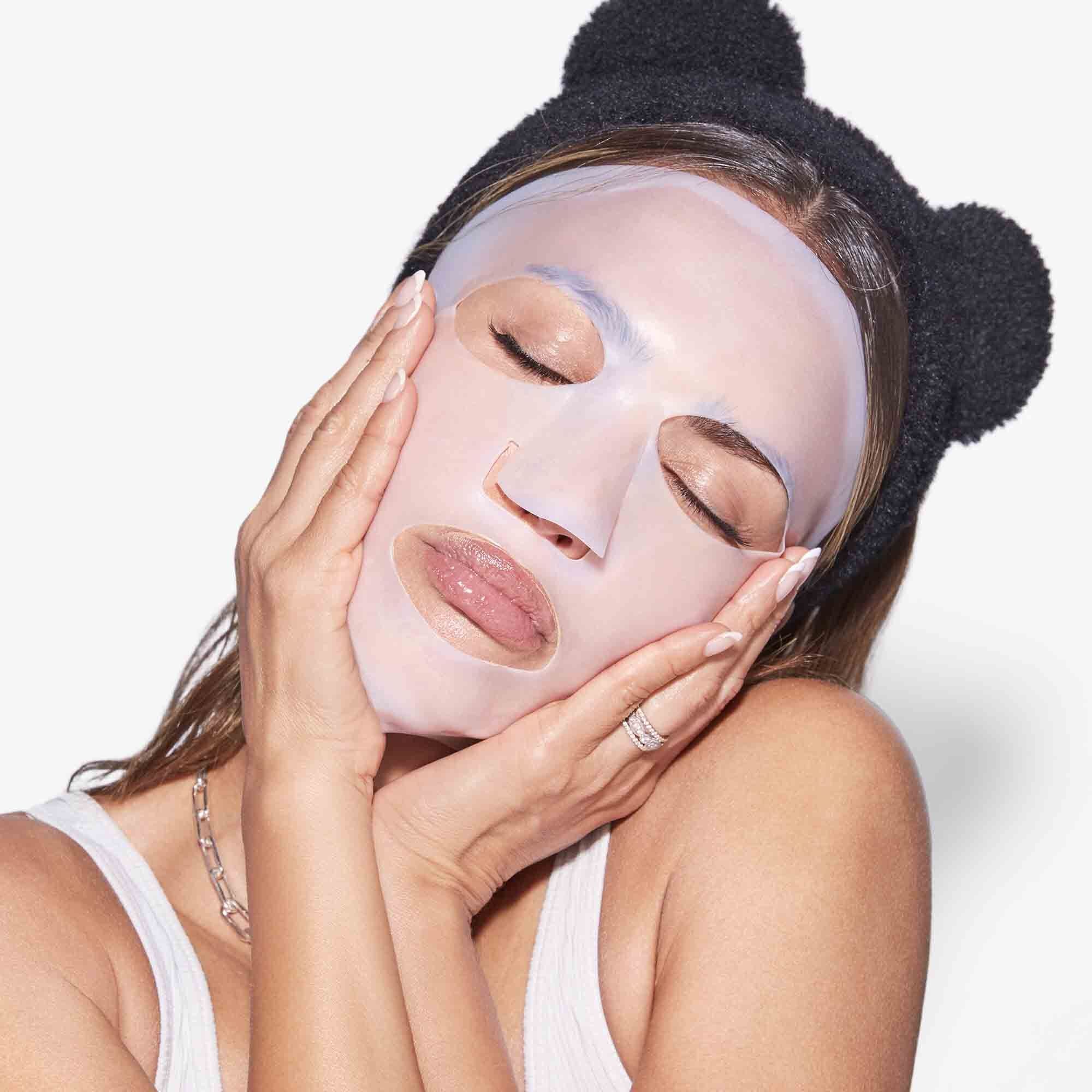Skincare Ingredients to Avoid During Pregnancy

While pregnancy is beautiful, no one really warns you about the changes your skin may go through. Hormonal acne, dark patches on your cheeks, and eye bags...where does it stop? And what happens to the pre-pregnancy skincare routine that you had mastered? Can you still follow it, or do you have to chuck all your products into the bin in fear of them harming the baby?
It is natural to be cautious about what you put on your skin when you are pregnant. After all, you wouldn't want to pose any kind of threat to a developing fetus. Some ingredients can be absorbed into your body, and hence, into your baby's body too, which is why it is important to be careful. The good news is that this article will guide you through pregnancy-safe and unsafe products so that you can still maintain your mama-glow AND protect your baby!
Changes Your Skin Goes Through During Pregnancy
There is no denying that women undergo skin changes during pregnancy. Usually, hormones are to blame but you can also just accept that these changes are the normal quirks that are part of your mama-journey.
During the 9 months of pregnancy, some women experience a bright complexion, fuller hair growth, and a glow that seems to be radiating from within. However, others witness this skin worsening as the baby bump grows. The most common skincare concerns during this period are:
- Dry skin
- The darkening of skin, especially across the cheeks. This is known as melasma or cholasma.
- Bouts of acne
Moreover, those women who have preexisting skin conditions that require special attention, including eczema, psoriasis, or rosacea, may notice their skin changing significantly. This could be a good or bad change, depending on each individual person.
Since pregnancy affects your entire body, you might also notice some skin changes on other areas of the body. This includes stretch marks, spider veins, faster hair growth, and in some cases, hair loss.
Skincare Ingredients to Avoid
Due to ethical reasons, clinical trials to determine which skincare ingredients are unsafe have not been conducted on women. However, animal, anecdotal, and case-specific studies have proven that some skincare ingredients can have serious effects on a developing fetus. It is also important to keep in mind that even though the Food and Drug Administration (FDA) makes it compulsory for cosmetic products to be declared "safe," these products do not need FDA approval before they can be sold to the public.
Here is a list of skincare ingredients that you must be wary of using when pregnant:
1. Retinoids
Vitamin A is an amazing ingredient for flawless skin, immune, reproductive, and eye health. Once your skin absorbs all its goodness, your body converts it to retinol. Some skincare products also use a type of retinol, called retinoid, for anti-aging purposes. This ingredient is commonly becoming a holy grail because not just does it help reduce fine lines, but it also reduces acne. This is because retinoids help exfoliate surface-level cells and boost collagen production.
Studies have found that over-the-counter skincare products contain lower levels of retinoids, while most prescription medicines, including Retin-A (tretinoin) and Accutane (isotretinoin) are loaded with significant doses. Even though topical products do not let retinoids get absorbed all the way through the skin, there have been multiple cases of birth defects linked to higher retinoid doses. Hence, when pregnant, it is better to lay off all forms of Vitamin A for a while.
There have been numerous cases reported of Accutane posing a risk of severe congenital defects. Moreover, most of these children develop neurocognitive issue. Hence, it is recommended that women should cease use of Accutane 1-2 months before trying to get pregnant.
2. Salicylic Acid
If you suffer from acne, you are sure to have heard of this magical ingredient. Salicylic acid has brilliant anti-inflammatory qualities that can help heal acne, just like an aspirin can help heal a headache.
However, according to a 2013 study, skincare products that have higher doses of salicylic acid, including peels and oral medications, must not be used during pregnancy. Even though lower doses of salicylic acid found in OTC skincare products are safe to use, make sure to consult a doctor.
3. Hydroquinone
A skincare product that is known to lighten skin and reduce pigmentation that occurs as a result of melasma and chloasma, hydroquinone is a commonly prescribed medication during pregnancy.
Even though there is no proven link between hydroquinone and congenital defects in children, the body is known to absorb a large amount of hydroquinone as compared to other skincare ingredients. In fact, most studies show that your skin can absorb 25 to 35 percent of hydroquinone. Hence, it is better to reduce the use of this skincare ingredient during pregnancy.
4. Chemical Sunscreens
Oxybenzone is a common ingredient used in sunscreens as an ultraviolet (UV) filter. It is a great ingredient for protecting the skin in the sun, but more and more research has proved that oxybenzone has a number of health and environment effects.
Since oxybenzone is an endocrine-disrupting chemical, experts believe that it can disrupt hormones and cause severe damage to the mother and baby during pregnancy.
An animal study conducted in 2018 showed that oxybenzone exposure caused permanent changes to mammary glands and lactation. Other studies have shown the chemical to cause permanent fetal damage, leading to serious conditions in the future, including Alzheimer's disease.
5. Alpha Hydroxy Acids (AHAs) and Beta Hydroxy Acids (BHAs)
These popular exfoliating ingredients are nothing short of a necessity for those who prefer chemical exfoliation. You all know how important it is to gently exfoliate your skin from time to time to ensure a healthy skin barrier, and so that your makeup and skincare products can seep deeply through the skin layers.
However, these brightening ingredients are not considered to be safe during pregnancy. Studies prove that since they disrupt the skin barrier, the skin is left vulnerable to the penetration of other substances. Moreover, AHAs and BHAs enter the bloodstream. This could cause potential harm to the baby. It must be avoided during pregnancy and breast-feeding.
Skincare Ingredients that are Safe
Pregnancy causes the hormones in our body to go crazy. During this time, it is important to remember to be kind to your body. Acne, hyperpigmentation, wrinkles, fine lines, dry skin, and stretch marks are all common effects of pregnancy.
Here are some safe skincare ingredients to use during your pregnancy-journey:
1. Glycolic Acid and Azelaic Acid
Breakouts are a part of pregnancy. The earlier you can accept that, the easier it will become to be kinder to yourself. You might have some flashbacks of adolescent-like breakouts during your nine months, but that's okay. You don't have to opt for retinoid-based products!
Glycolic acid, in small amounts, is considered to be safe for use during pregnancy. OTC skincare products usually only use a small amount! You can also opt for azelaic acid to help with fine lines, dull skin, and pigmentation during pregnancy. Moreover, studies have found that topical benzoyl peroxide is safe to use during this time.
2. Vitamin C, E, K, and B3
We know, we know- who doesn't love vitamin C?! Not only does this magical ingredient help boost the immune system, it can also help ward off free radicals in the body. That is why you can always opt for topical antioxidants to protect your skin from any sun damage, and also to increase collagen.
You can also look for skincare products that contain vitamin E, K, and B3. All of these are safe to use during pregnancy.
3. Hyaluronic Acid (HA)
Another game-changer in the skincare industry, HA is completely safe to use when pregnant. Due to the hormonal changes in the body, your skin can become dry and flaky. While drinking more water is important, you can also opt for HA, cocoa butter, and peptides to help your skin feel more hydrated and dewy.
If you are worried about stretch marks, simply moisturise the prone area so that the skin can stretch out naturally as the baby in your belly gets bigger.
4. Mineral-Based Sunscreens
Chemical broad-spectrum sunscreens are considered unsafe during pregnancy. However, that does not mean you can step out of your house without sunblock! Remember, long-term sun damage is responsible for causing wrinkles and skin cancer.
A safer option is mineral-based sunscreen! Since these protect the skin by causing UV rays to completely bounce of the skin, they are safe to use during pregnancy. The usual ingredients used in this sunscreen are zinc oxide and titanium dioxide.
Bottom Line
Giving up on a skincare routine that has worked wonders for your skin in the past is not easy. However, it is important to protect your little one at all costs, right? Simply avoid ingredients that can be harmful to you or your baby during this precious time. If you are unsure of any ingredient, simply talk to your OB/GYN or dermatologist!




Comments